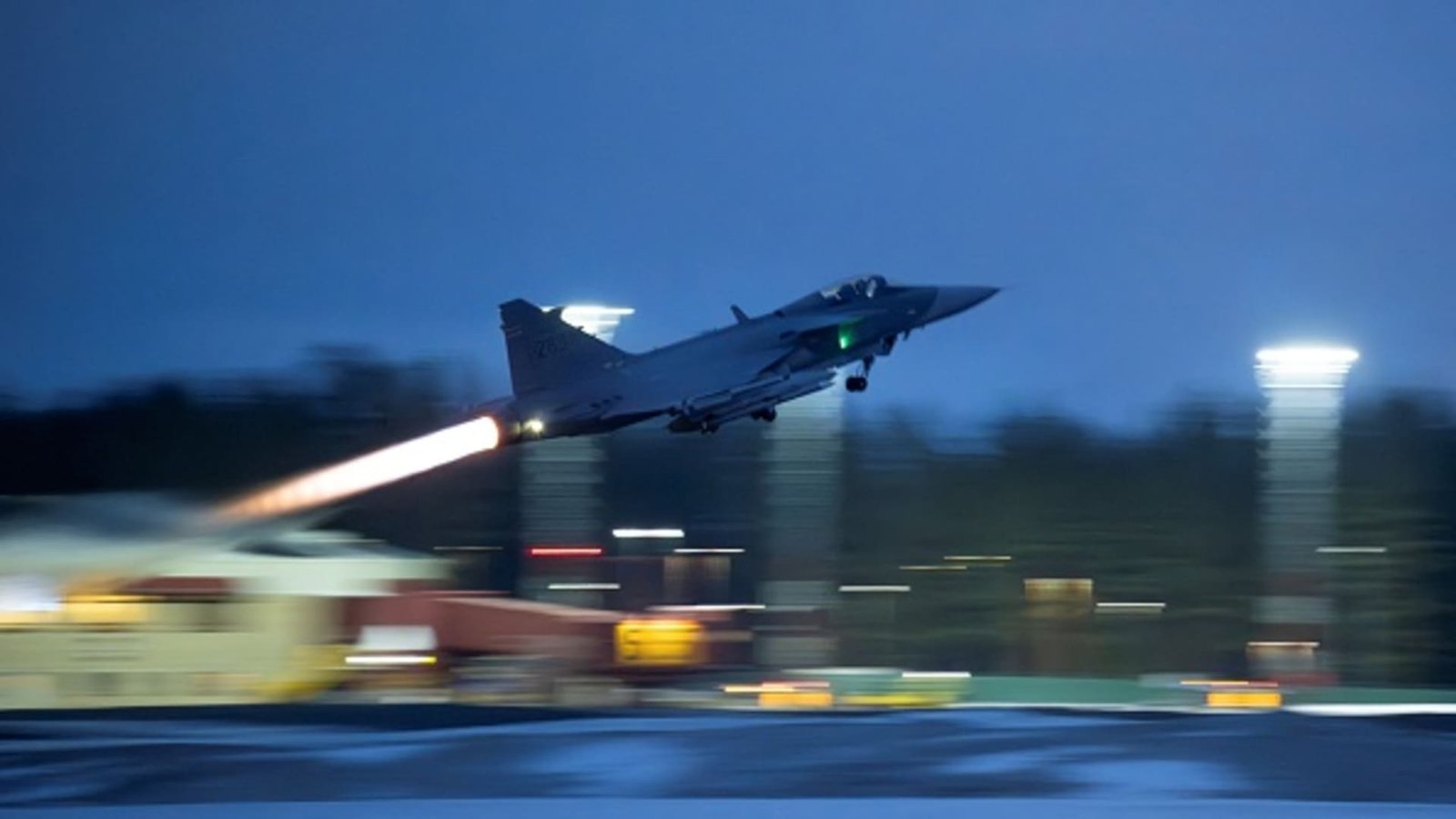In a historic move, Sweden officially became the 32nd member of the North Atlantic Treaty Organization (NATO) on Thursday, marking a significant shift in the country’s foreign policy. This decision comes almost two years after Sweden first applied to join the military alliance, a move prompted by escalating tensions in the region following Russia’s invasion of Ukraine.
The Swedish government had been holding discussions and meetings to finalize its accession to NATO, with all current members of the alliance approving Sweden’s membership. The news was confirmed with a statement from NATO Secretary General Jens Stoltenberg, who welcomed Sweden into the fold and emphasized the country’s importance in strengthening the alliance.
“Sweden’s accession makes NATO stronger, Sweden safer, and the whole Alliance more secure. I look forward to raising their flag at NATO HQ on Monday,” Stoltenberg said in the statement.
The decision to join NATO marks a significant departure from Sweden’s traditional policy of military non-alignment, which has been in place since the Napoleonic Wars. The country had long maintained a stance of neutrality in conflicts and refrained from joining military alliances, but the changing geopolitical landscape in Europe has led to a reassessment of its security strategy.
The timing of Sweden’s accession to NATO is closely linked to Russia’s aggressive actions in the region, particularly its invasion of Ukraine in 2022. The threat posed by Russia’s assertive behavior has prompted neighboring countries like Finland and Sweden to seek the protection and security guarantees offered by the military alliance.
Finland, another Nordic country, formally joined NATO last April in response to the escalating tensions in the region. Both Helsinki and Stockholm recognized the need for collective security and mutual defense in the face of Russian aggression, leading to their decisions to apply for membership in the alliance.
The accession process for Sweden was not without challenges, as some NATO members, including Hungary and Turkey, initially delayed their approval of Sweden’s membership. Hungary’s Prime Minister Viktor Orban had long opposed Sweden joining NATO, citing differences in their political views and the state of democracy in Hungary.
However, after a meeting between the prime ministers of Hungary and Sweden, both countries committed to overcoming their differences and reaffirmed their commitment to mutual defense. Turkey, on the other hand, ratified Sweden’s NATO membership in January, despite previous concerns about Sweden’s approach to security threats.
Sweden’s accession to NATO has implications not only for the country’s security but also for the broader alliance. As a key player in the Nordic region, Sweden’s participation in NATO will enhance the alliance’s capabilities and strengthen its presence in Northern Europe.
The formal ceremony marking Sweden’s entry into NATO took place in Washington, D.C., where Swedish Prime Minister Ulf Kristersson handed over the final documents to US Secretary of State Antony Blinken. This symbolic gesture solidified Sweden’s commitment to collective security and cooperation within the transatlantic alliance.
Looking ahead, Sweden’s membership in NATO will likely have far-reaching implications for regional security and stability. By aligning with the alliance, Sweden is signaling its willingness to contribute to collective defense efforts and uphold the values of democracy and international cooperation.
As Sweden takes its place among the member states of NATO, it joins a community of nations dedicated to promoting peace, security, and stability in an increasingly complex and uncertain world. The decision to join the military alliance represents a significant milestone in Sweden’s foreign policy and underscores the country’s commitment to ensuring its own security and that of its allies.

